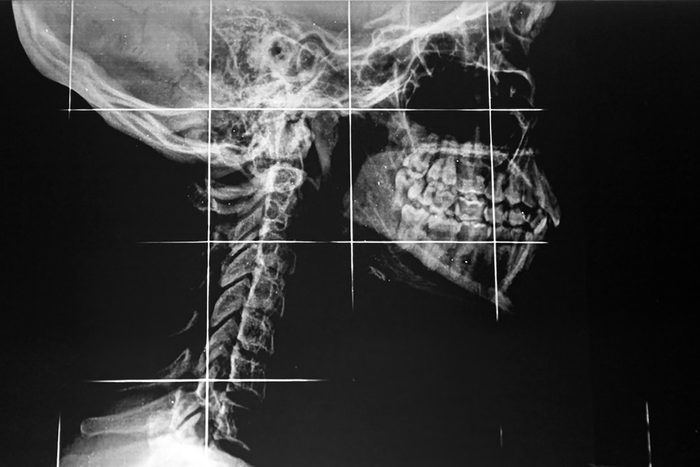
Jaw pain causes
Jaw pain can be caused by a variety of things, from sinus pressure to cavity-related nerves to temporomandibular joint dysfunction (TMJ). “The jaw has connections that can be triggered through any mouth activity, like chewing, sucking, or brushing,” says Jake Bateman, DDS, who practices dentistry in Kingsport, TN. “Misalignment of the jaw can also contribute to significant pain,” he says.
There are many treatments that can help with jaw pain, most of them involving dental care. The first step should be to see a dentist to understand the cause, which can include tooth grinding, sinus problems, or infections, according to the American Dental Association (ADA). These are the pain signals you should never ignore.
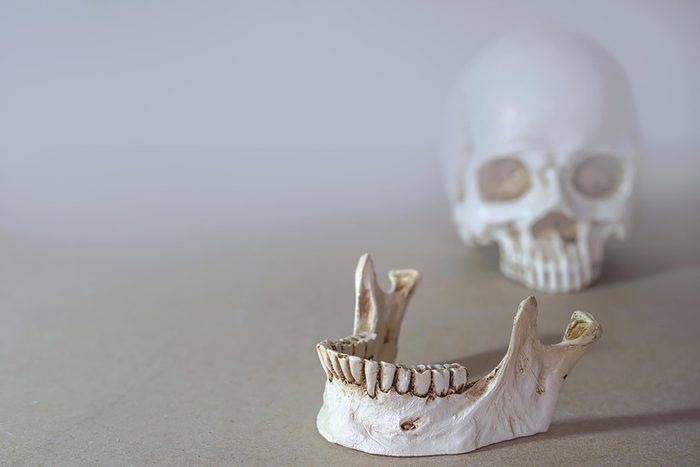
TMD
Temporomandibular joint disorder, abbreviated as TMD (also known as TMJ), affects the joints that connect the jawbone to the skull. It is one of the common jaw pain causes that is characterized by pain and restricted movement. Its symptoms can significantly affect the quality of life. Typical symptoms include pain and tenderness in the jaw joint area, the neck, the shoulders, the face, and the ear, as well as clicking sounds. Traditional treatments for TMD include muscle relaxants, a mouth guard, and dental procedures to correct bite problems and balance biting surfaces, according to the ADA. Patients can also try home remedies, including over-the-counter medications, heat or cold packs, and relaxation therapy to manage the pain. Here are more home remedies for every ailment.
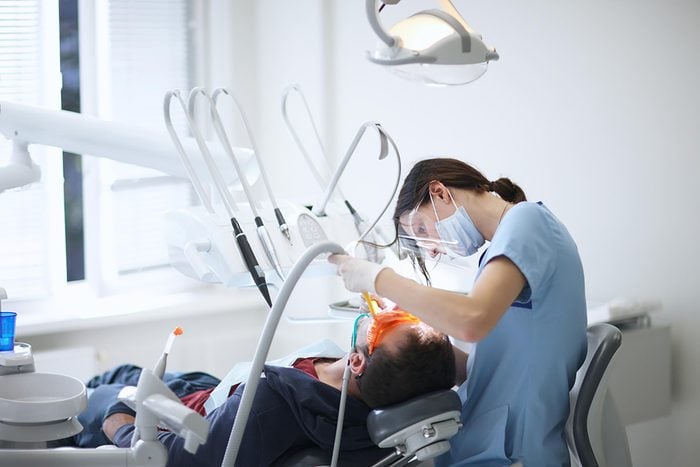
Teeth grinding
Teeth grinding, which you can do while awake or asleep, can damage the teeth and lead to jaw pain. Stress or anxiety are a couple of common triggers for teeth grinding, according to the Mayo Clinic. Severe cases can also cause headaches and lead to TMJ disorders, they note. Mouthguards or dental procedures to repair the damage (like a crown) may be recommended.
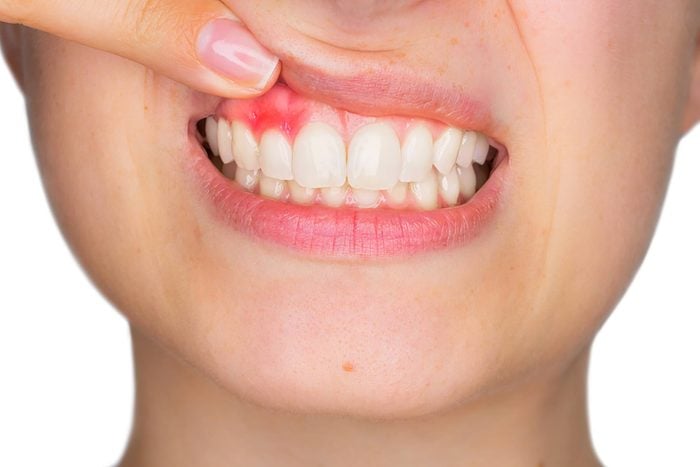
Gum disease
Gum disease, or the infection of the tissues and bones surrounding and supporting the teeth, is caused by poor oral health habits or skipping regular dental visits, which permits the buildup of plaque; risk factors include smoking, diabetes, and certain medications, according to the National Institute of Dental and Craniofacial Research. If you experience signs of periodontal disease—including bad breath, pain when chewing, sensitive teeth, receding gums, loose teeth, tender, red, bleeding, and swollen gums, see your dentist. You can prevent gum disease by using proper oral hygiene. Here are some other reasons why your gums are bleeding.
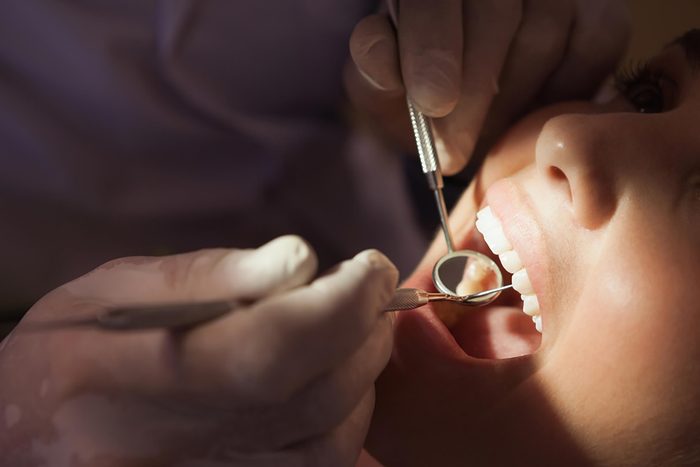
Untreated cavities
You think of cavity discomfort as being localized to the affected teeth, but they can also trigger jaw pain, says the ADA. Regular dental check-ups can help make sure cavities don’t go undetected and untreated. These are the cavity symptoms you shouldn’t ignore.
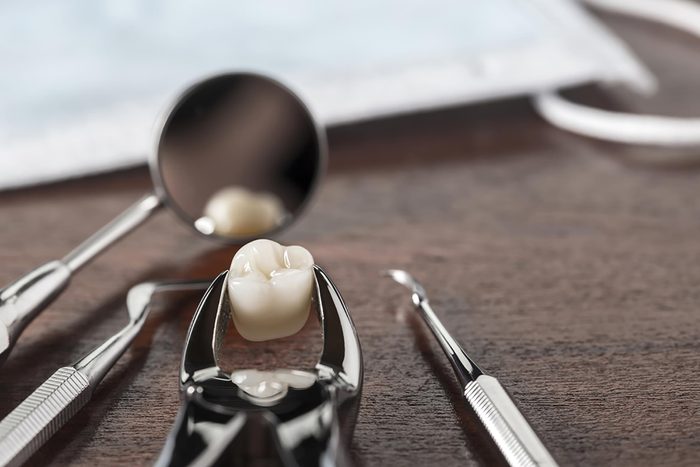
Impacted wisdom teeth
Wisdom teeth, which come in between ages 17 and 25 per Mayo Clinic, can make trouble for the jaw, especially if they’re impacted. Fully or partially impacted wisdom teeth may become infected, says Mark S. Roisman, DMD, a general and cosmetic dentist in Westport, CT. They may cause acute pain and swelling in the surrounding tissues and gums. Even after extraction, it can take a while for an infection to clear up and may require antibiotics, or in severe cases, could require surgically draining the site of infection, according to Dr. Roisman. Here are some of the best foods to eat after getting your wisdom teeth removed to make it all feel better.

Sinus pain
Sinus infections, allergies, and colds can be jaw pain causes, notes Dr. Roisman. “Ruling out sinuses can involve anything from referring them to their physician, waiting for a cold to pass or have them take their allergy medication.” He notes that he may tell a patient to try a short-term nasal spray and if the pain clears up, it’s not a dental issue, so the patient should see his regular doctor or ENT. To take care of your oral health, check out the things your dentist needs you to do differently.

